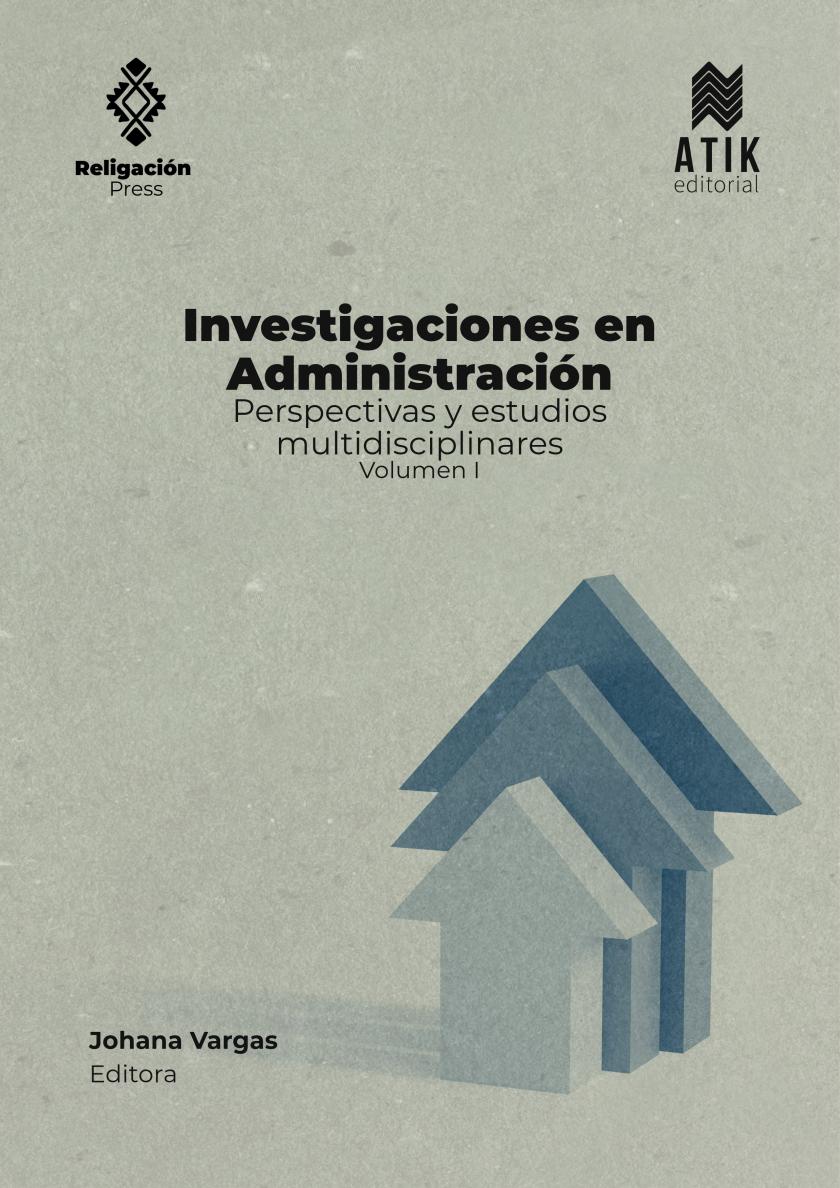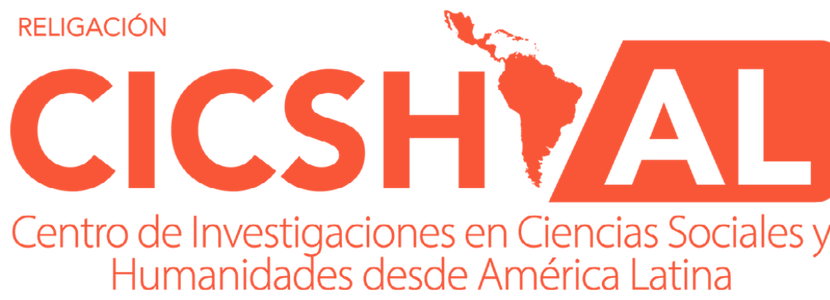Research in Management. Perspectives and multidisciplinary studies. Volume I
Keywords:
Business organization, marketing, public management, administration, human relations, communication.Synopsis
This book brings together elements on different areas of the administrative sciences, the topics address theoretical and field research that allow the reader to approach the different realities of Latin America. It presents labor issues and their relationship with happiness, marketing, corporate social responsibility, cases of entrepreneurship, public management and organizational climate. In addition, leadership dynamics and their impact on the development of organizations are explored, as well as innovations in human resource management that seek to foster more inclusive and equitable work environments. Each chapter offers practical insights with illustrative case studies in Latin American contexts, interviews with experts, and tips for improving management science skills. In short, this book is not only an academic tool, but also a practical guide for professionals and students who wish to understand and apply management concepts in a dynamic and constantly evolving environment.
Chapters
-
La felicidad en el trabajo y sus elementos
-
Importance of Marketing Audit in Oil Companies in Tabasco, Mexico
-
Characteristics of Environmental, Social, Governance companies in Latin-American
-
Entrepreneurship in Peru, a systematic analysis: reality and success stories
-
Informality in public transportation in the city of Popayán, Colombia
-
Factors influencing the growth of small and medium-sized enterprises from the perspective of entrepreneurs in southern Mexico
-
Challenges of formal urban passenger transportation service
-
Happiness management and healthy organizations. Intervention evidence
-
Conflict management and organizational climate of an educational institution in San Juan de Lurigancho
Downloads
References
Aristóteles. (2005). Ética a Nicómaco (Primera edición, novena reimpresión). Alianza Editorial.
Asociación Americana de Psicología (APA). (2010). Diccionario Conciso de Psicología. Manual Moderno.
Aurelio, M. (1977). Meditaciones. Editorial Credos.
Ben-Shahar, T. (2019). La búsqueda de la felicidad. Planeta Publishing.
Brugger, W. (2000). Diccionario de filosofía (14a ed.). Herder.
Capgemini Research Institute. (2022). The people experience advantage: How companies can make life better for their most important assets. https://prod.ucwe.capgemini.com/wp-content/uploads/2022/07/People-Experience-Research_Report.pdf
Cernas Ortiz, D. A., & Mercado Salgado, P. (2021). Matices y situaciones de la felicidad en el trabajo. Universidad Autónoma del Estado de México.
Diener, E., Emmons, R. A., Larsen, R. J., & Griffin, S. (1985). The Satisfaction With Life Scale. Journal of Personality Assessment, 49(1), 71-75. https://doi.org/10.1207/s15327752jpa4901_13
Donner, M. (2021). Manifiesto en contra de la autoayuda, en defensa de la autodestrucción (Primera edición: septiembre de 2021). Libros Cúpula.
Fisher, C. D. (2010). Happiness at Work. International Journal of Management Reviews, 12(4), 384-412. https://doi.org/10.1111/j.1468-2370.2009.00270.x
Fitriana, N., Hutagalung, F. D., Awang, Z., & Zaid, S. M. (2022). Happiness at work: A cross-cultural validation of happiness at work scale. PLOS ONE, 17(1), e0261617.
González Canseco, A. (2022, diciembre 22). Hallazgos 2022 de Great Place to Work® México.
Han, B.-C. (2022). La Sociedad del Cansancio. Herder Editorial S.A.
Helliwell, J. F., Wang, S., Huang, H., & Norton, M. (2022). Happiness, Benevolence, and Trust During COVID-19 and Beyond. En J. F. Helliwell, R. Layard, J. D. Sachs, J.-E. De Neve, L. B. Aknin, & S. Wang (Eds.), World Happiness Report 2022 (pp. 13-52). Sustainable Development Solutions Network.
Hills, P., & Argyle, M. (2002). The Oxford Happiness Questionnaire: A compact scale for the measurement of psychological well-being. Personality and Individual Differences, 33(7), 1073-1082. https://doi.org/10.1016/S0191-8869(01)00213-6
Lukoševičiūtė, J., Gariepy, G., Mabelis, J., Gaspar, T., Joffė-Luinienė, R., & Šmigelskas, K. (2022). Single-Item Happiness Measure Features Adequate Validity Among Adolescents. Frontiers in Psychology, 13, 884520. https://doi.org/10.3389/fpsyg.2022.884520
Lyubomirsky, S. (2014). Los mitos de la felicidad: Descubre las claves de la felicidad auténtica (1a ed). Urano.
Lyubomirsky, S. (2021). La ciencia de la felicidad: Un método probado para conseguir el bienestar. Urano.
McClelland, D. C. (1989). Motivational factors in health and disease. American Psychologist, 44(4), 675-683. https://doi.org/10.1037/0003-066X.44.4.675
Medina Cárdenas, O. (2019). The government of happiness. Discourse analysis of Positive Psychology’s self-help. Quaderns de Psicologia, 21(1), 1481. https://doi.org/10.5565/rev/qpsicologia.1481
Pryce-Jones, J., & Lindsay, J. (2014). What happiness at work is and how to use it. Industrial and Commercial Training, 46(3), 130-134. https://doi.org/10.1108/ICT-10-2013-0072
Reale, G., & Antiseri, D. (1988). Historia del pensamiento filosófico y científico. Antigüedad y Edad Media (1ra ed.). Herder.
Rojas, M. (2005). A Conceptual-Referent Theory of Happiness: Heterogeneity and its Consequences. Social Indicators Research, 74(2), 261-294. https://doi.org/10.1007/s11205-004-4643-8
Rozental’, M. M., & Iudin, P. F. (2013). Diccionario filosófico. Brontes.
Sánchez Vázquez, J. F. (2018). El significado vital en las organizaciones: Aportaciones de la economía de la felicidad. CAURIENSIA, 13, 143-156. https://doi.org/10.17398/2340-4256.13.143
Seligman, M. E. P. (2022). La auténtica felicidad. Penguin Random House Grupo Editorial, S.A.U.
Sender, G., Carvalho, F., & Guedes, G. (2021). The Happy Level: A New Approach to Measure Happiness at Work Using Mixed Methods. International Journal of Qualitative Methods, 20, 160940692110024. https://doi.org/10.1177/16094069211002413
Watson, D., Clark, L. A., & Tellegen, A. (1988). Development and validation of brief measures of positive and negative affect: The PANAS scales. Journal of Personality and Social Psychology, 54(6), 1063-1070.
Yepes Stork, R., & Aranguren Echeverría, J. (2009). Fundamentos de antropología: Un ideal de la excelencia humana (6ta ed.). EUNSA, Ediciones Universidad de Navarra.







